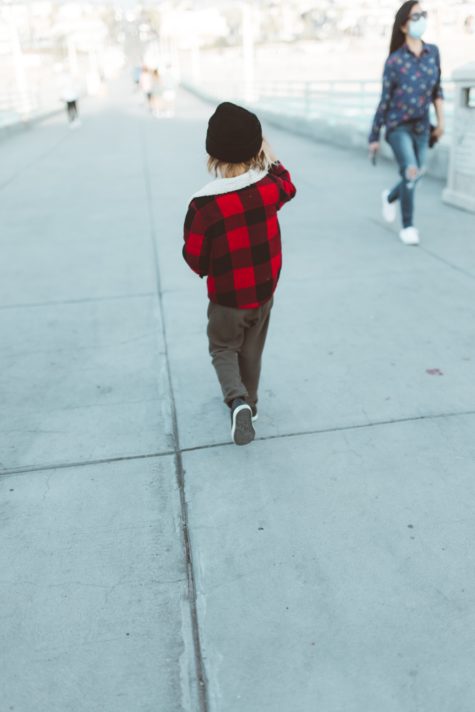This op-ed of mine originally appeared in the NY Daily News on Dec. 19:
“I’m thinking of letting my 8-year-old walk to her friend’s apartment. It’s literally one block. But I’m not sure if she’ll get stopped, or if she’s too young, or…” My neighbor’s voice trailed off as he worried about someone mistaking his parenting decision for neglect in Jackson Heights, Queens, where we live.
“Gee, if only you had perhaps America’s leading proponent of childhood independence to ask,” I replied, referring to myself with, okay, a bit of bravado.
He erupted in laughter. “Wow! Of course. So…is it okay?”
And here I must confess that, having heard from too many parents stopped for everyday decisions, like letting their kids walk home from the park, or walk the dog, ye olde leading proponent had to pause: Can parents legally allow their 8-year-old to walk down the street when they think she’s ready?
That’s a very hard question to answer in New York. In fact, it’s a hard question to answer almost anywhere except Utah (more on that later), because in 47 of the 50 states the laws are opaque, leaving it to the discretion of pretty much everyone but the parent to decide what a child can or cannot do.
Worse, there are two sets of laws. Criminal law covers whether a parent has been so neglectful that they can be arrested or even locked up for endangering a child. Then there’s child protection law. If child protective services believes a parent has failed to properly supervise a child, it can remove the child from the home and put the parent on the state’s child abuse registry. (This is like the sex offense registry, just a little harder to access.) Most states don’t even require a trial before listing someone as a child neglector.
At Let Grow, my nonprofit promoting childhood independence, we just completed the first-ever map of the 50 states’ neglect laws and policies. It’s illuminating.
New York’s criminal law says child endangerment is the “lack of reasonable diligence as to a child under 18.” Hmm. Who decides what’s reasonable diligence? The parent? A passerby? The cops?
Meantime, New York’s child protection law says that neglect occurs when a child’s “physical, mental or emotional condition has been impaired or is in imminent danger of becoming impaired as a result of the failure of his parent…to exercise a minimum degree of care,” But again, who decides what is “minimum”? The state holds all the cards, and its guidelines feel like they were written by Dolores Umbridge. “A child of 12 might be fine alone for two hours in an afternoon,” says The Office of Children and Family Services’ website. Gee, thanks.
Might be fine? What about David Farragut? When he was 12, his job was to bring an enemy ship to port. (Look it up! War of 1812.) When Kristi Amanda Thomas was 12, she started The Babysitters Club. (Fiction, but 176 million copies sold.) When I was 12, I spent the day at the library (and bakery). New York’s guidelines underestimate kids and undermine their independence.
And this isn’t just a problem here. “The problem is a national one,” says Diane Redleaf, Let Grow’s legal consultant and author of “They Took the Kids Last Night: How the Child Protection System Puts Children at Risk.” In that book, she writes that virtually every state’s “neglect laws are very open-ended, allowing child protective investigators and their supervisors to declare a child neglected based on their own unbounded opinions as to what is ‘proper’ or ‘necessary care.’ ”
Of course, most parents will never be arrested or investigated for letting their kids walk to the store, or stay home alone for a little bit. But as my neighbor’s question shows, even the small possibility creates a chilling effect. He knows his child is capable of this little feat. He wants her to experience that freedom. But he worries about the authorities.
In 2018, Utah became the first state to pass a “Free-Range Parenting” bill that says that letting kids walk to school, play outside, wait briefly in the car under some circumstances, or stay home alone is not neglect. One Los Angeles-to-Utah transplant told us she’s grateful she can let her kids play outside “without fear of the consequences I may have faced in California, where helicopter parenting is both socially and legally enforced.”
Now we’re working state by state to fix these unclear laws, so that a parent’s decision to give their children some reasonable — and necessary — independence cannot be mistaken for neglect.
Parents know best when their children are ready to walk to a friend’s house, start a babysitting club, or, on occasion, bring an enemy ship to port.
Photo by Nathan Dumlao on Unsplash




1 Comment
Our daughter walked the 1/2 mike to the store alone at 7. Almost alone. She had our beautiful, huge, fully trained boxer with her, and I was lurking behind. Having dogs around always increased our sense of security.